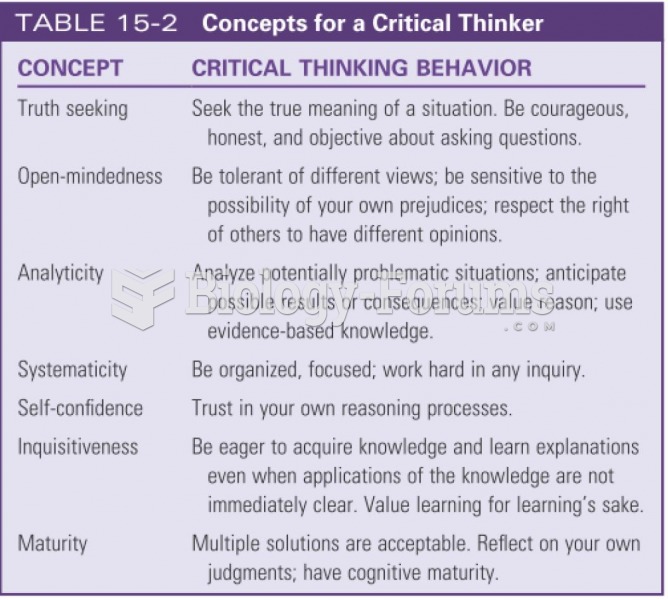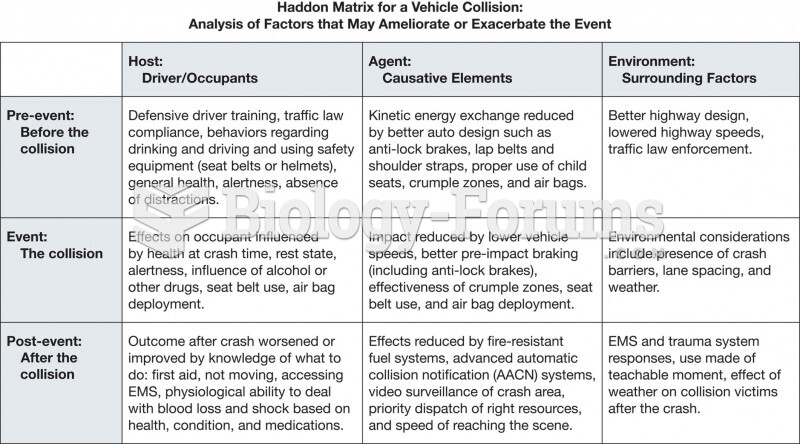|
|
|
The liver is the only organ that has the ability to regenerate itself after certain types of damage. As much as 25% of the liver can be removed, and it will still regenerate back to its original shape and size. However, the liver cannot regenerate after severe damage caused by alcohol.
Bacteria have flourished on the earth for over three billion years. They were the first life forms on the planet.
For pediatric patients, intravenous fluids are the most commonly cited products involved in medication errors that are reported to the USP.
In ancient Rome, many of the richer people in the population had lead-induced gout. The reason for this is unclear. Lead poisoning has also been linked to madness.
There are 20 feet of blood vessels in each square inch of human skin.







